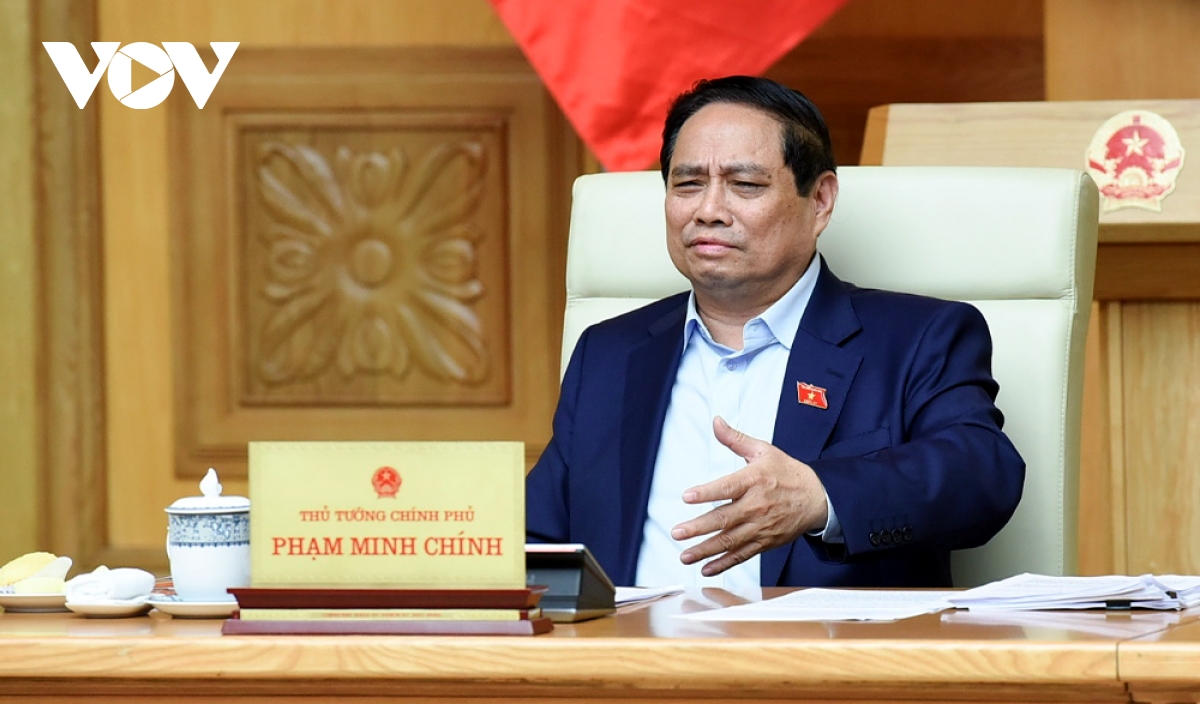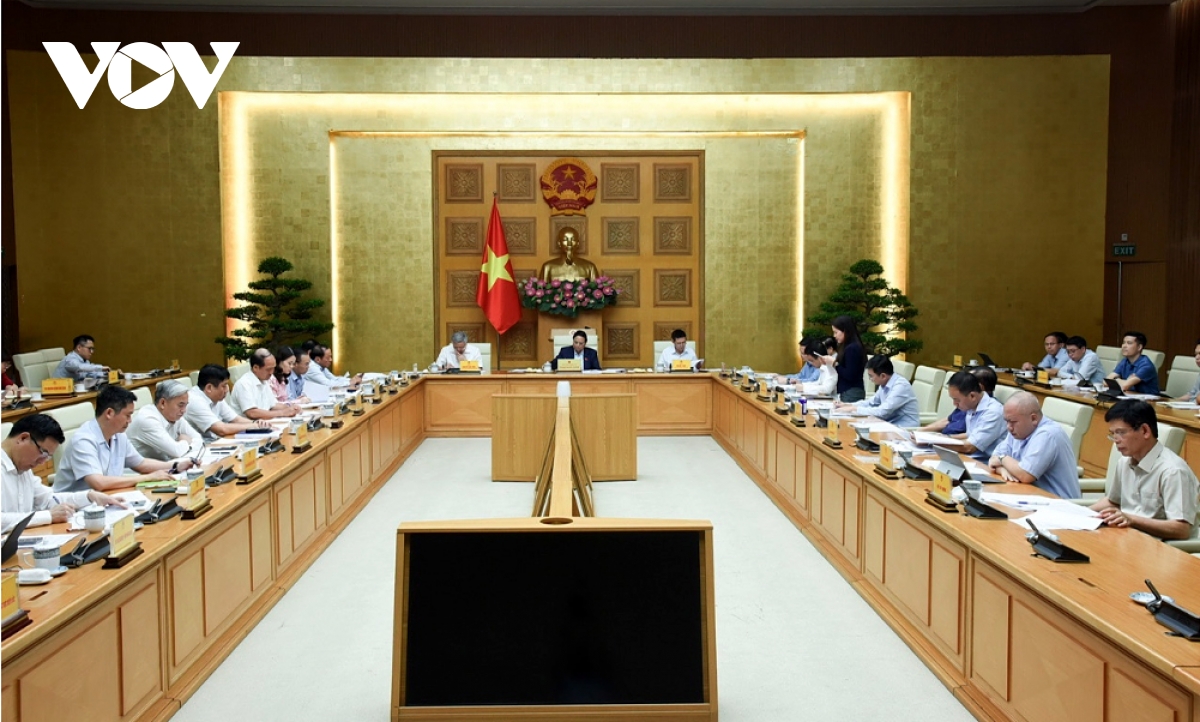Vietnam charts prompt response to Middle East conflict, global economic shifts
VOV.VN - Prime Minister Pham Minh Chinh chaired a meeting of key Government members on June 23 to assess recent developments in the Middle East and other global changes impacting Vietnam’s economic growth and propose timely policy responses.

The meeting was attended by heads of ministries and central agencies, and major economic groups.
Delegates noted that the ongoing conflict between Israel and Iran, along with US military action in the region, has led to significant global consequences, including rising oil and energy prices, disrupted transportation and trade flows, and growing inflationary pressure. Although Vietnam's direct economic ties with the Middle East remain limited, the indirect impacts on exports, imports, and logistics are already being felt.
In his speech, the PM emphasised the unpredictable and complex nature of global developments, which could negatively affect key growth drivers such as production chains, supply chains, logistics, exchange rates, and consumer demand. However, he also highlighted the opportunity for Vietnam to restructure its economy toward a greener, faster, and more sustainable model through diversifying markets, products, and supply chains.
He called on ministries, local authorities, businesses, and citizens to stay calm, maintain strategic focus, and draw on past experience in navigating global challenges. Ministries and agencies should closely monitor developments and take timely, appropriate actions within their mandate.
The Prime Minister stressed the need to rejuvenate and strengthen traditional growth drivers, namely investment, exports, and consumption, while creating breakthroughs in emerging areas such as science and technology, innovation, digital transformation, and green transition.
On the fiscal policy, he said, the Government will continue to apply measures such as tax and fee exemptions, deferrals, and reductions to support people and businesses. He instructed increased revenue collection, spending cuts, and faster disbursement of public investment. especially in strategic infrastructure, alongside strict market and price controls, especially for essential commodities like fuel, electricity, and food.

Regarding the monetary policy, he stressed the need for flexibility and close coordination with fiscal measures. Key priorities include controlling inflation and exchange rates, maintaining reasonable interest rates to support business access to capital, and expanding credit in a controlled manner to priority sectors such as deep-processing industries, agriculture, and exports, particularly by providing credit support to farmers.
The Prime Minister reiterated the importance of ensuring national food and energy security, stabilising markets, and promoting domestic production in all circumstances, with agriculture serving as a foundational pillar of the economy.
He also called for renewed efforts to negotiate new Free Trade Agreements (FTAs), fully leverage existing ones, enhance trade promotion, streamline customs clearance procedures, and reduce input and compliance costs for businesses. He called for steady and principled negotiations on tariff matters with the United States.
In addition, he reminded, it is important to develop the domestic market by boosting internal consumption, promoting e-commerce and digital tax collection, supporting the “Vietnamese people prioritise Vietnamese goods” campaign, and expanding the tourism, cultural, and entertainment sectors.
He instructed provincial and municipal authorities to swiftly stabilise their two-tier governance structures following recent restructuring, while urging ministries to enhance decentralisation and delegation of authority to avoid administrative gaps. He called for stronger efforts to combat counterfeit goods, particularly in pharmaceuticals and food, alongside improving the investment climate, supporting businesses, and implementing key Party and Government resolutions.
The Prime Minister highlighted the need for coordinated public communication to showcase Vietnam’s socio-economic achievements, maintain investor confidence, prevent speculation and panic, and foster social consensus to overcome challenges and achieve national development goals.





